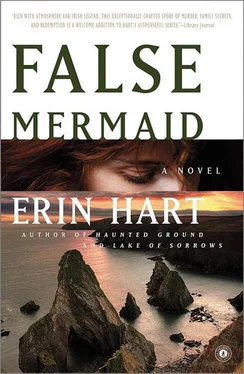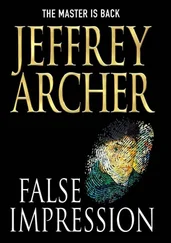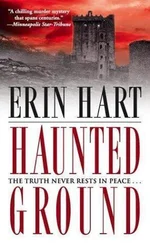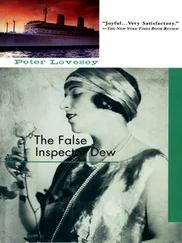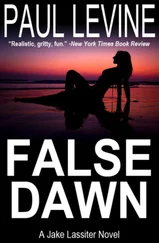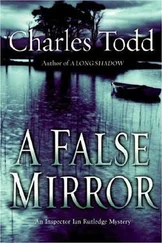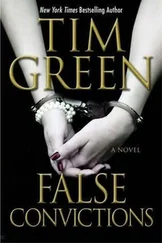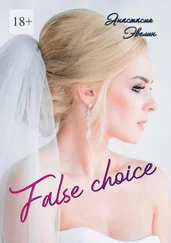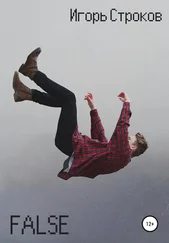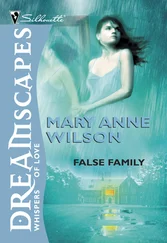“And so far as you know, nobody’s got him under obso?”
“No—not as far as we know. As I said, he arrived in Dublin on Friday, so he could be anywhere in the country by now.”
“And you don’t know if he’s filed a missing persons report?”
Nora shook her head. “I’m afraid we’re completely in the dark. We obviously couldn’t just phone up and ask. Frank Cordova, the detective back in the States, has been working on some new leads. A few things have just turned up in the past few days, but—”
“Still not enough to file charges?”
“I’m afraid not.”
Devaney pondered for a minute. “Well now, it seems to me your only choice is to dig in for a bit, at least until your detective can scare up more on those leads. He should get in touch with me directly, and I can shuttle him to the right person in the Serious Crimes Unit. In the meantime, I’ll work a few contacts, see what I can find out.”
“I’d be so grateful for any help. I should warn you—Peter Hallett is dangerous. He has a way of twisting things, turning everything around so that he looks like the victim, and anyone who dares to question him seems seriously disturbed. He made my sister seem completely mad—and he’s been trying to back me into that same corner for five years.”
The two girls had climbed to the top of the opposite promontory overlooking the harbor. Nora shaded her eyes to peer over at them.
Devaney’s voice was thoughtful. “Could Elizabeth know enough about her mother’s death to be in danger?”
“I don’t know. She was only six, and she was out of town with my parents at the time of Tríona’s murder.”
“Still, children see and hear things nobody else does. Especially true in domestic cases. But kids don’t want to be grassing on the other parent. Has she ever been interviewed by a social worker or counselor?”
“Her father wouldn’t allow it. He moved away after my sister’s death, so I’ve had no contact with Elizabeth for the past four years. Even now, I can’t get her to talk to me. I tried to ask this afternoon why she ran away, and do you know what she asked me? If everyone believed her dad was a murderer. She flatly denies that he had anything to do with my sister’s death.”
“Not uncommon, unfortunately. Sometimes it takes them a long time to figure things out. But she did come to you—that’s a good sign.”
Nora was remembering how Elizabeth fidgeted when pressed. “I’m afraid I don’t have much experience with children.”
Devaney offered a sympathetic wince. “My wife tells me to stop worrying and start listening—I think it’s very good advice.” He turned to Cormac. “Ready for that tune now?”
Back at the house after the excursion, Nora watched the musicians getting ready to play, Róisín taking a half-sized fiddle from her case while her father slid an amber cake of rosin up and down his bow, the rounded belly of his fiddle still dusty from the last application. When all was ready, the two fiddlers sat cradling their instruments, plucking absently at their strings, bows at the ready on the table. “Why don’t you and Róisín play something together to start us off?” Cormac suggested to Devaney. “Maybe the tune you were playing down at the pub this afternoon—‘The Pigeon on the Gate.’ That was a nice setting.”
Father and daughter exchanged a quick glance and launched into the tune, not too fast, not too slow, triplets slipping up and over the head of the melody like tiny snares, the low notes a throaty growl. Elizabeth seemed secretly impressed that someone her own age could just sit down and start playing an instrument. She couldn’t take her eyes off Róisín’s dancing fingers. When the two fiddles slipped easily into a second set of reels and Cormac picked up his flute to join in, Elizabeth’s eyes grew wider.
Nora thought about something a teetotaling friend had said to her once, as they were crushed in the crowded back room of a pub. I don’t drink myself, this friend had shouted in her ear over the din. But I like being where it is. That was what being near this music felt like, she thought. The tunes belonged to another realm, a separate world of which she was not really a part. She did not speak the language, and yet hearing these tunes was somehow essential, almost like nourishment. Elizabeth’s eyes were still on Róisín’s fiddle. Some people were susceptible to this music, and some were not. Elizabeth looked to be smitten.
“Shall we try a few Donegal tunes?” Cormac asked. “What about ‘The Gravel Walks’?” He began to play, leading them into a thicket of angular reels. There was definitely something different about the music in a place like this. Donegal had a reputation as a “gentle” place, where the veil between worlds was thin. Otherworldliness was simply fact here, like hearing music on the wind, or swimming with the souls of the drowned.
The evening passed quickly, but after a feast of excellent tunes, Róisín looked as if she might be tiring. Nora knew the evening was drawing to a close when she felt Cormac’s eyes upon her.
“Nora, would you ever give us a song?”
“I’m not in great form—”
He touched her hand. “Please, Nora.”
How was it possible to refuse? She closed her eyes and began:
Is cosúil gur mheath tú nó gur thréig tú an greann
Tá an sneachta go frasach fá bhéal na trá
Do chúl buí daite is do bhéílín sámh
Siúd chugaibh Mary hÉighnigh is í i ndiaidh an Éirne a shnámh.
There was a sudden commotion, and Nora opened her eyes to find that Elizabeth had risen from her chair and darted from the room.
“Excuse me,” Nora said to the others at the table. By the time she reached the upstairs bedroom, Elizabeth had managed to wedge herself in between the wardrobe and the wall, and was pressing her face into the cupboard as if wishing she might crawl behind it. Was it something in the song that set her off? She couldn’t possibly know the meaning of the words.
Nora crouched against the wardrobe. “Elizabeth, please tell me what’s troubling you.”
“Go—away—” Dry sobs came like short, involuntary howls. Cormac’s head appeared at the door, but Nora signaled him that she was all right, for the moment, and he retreated.
“Lizzabet, please don’t push me away.”
“You don’t understand anything.”
“Will you let me try?”
“You think—I ran away—because my dad—” Her voice slid up almost an octave. “He didn’t do anything. He’s my dad—I miss him.”
Nora felt yet again as if her heart would crack. “Why, then, Lizzabet? Why did you come to me?”
There was no answer for a moment but ragged sobs. When Elizabeth finally spoke, her voice sounded small and faraway. “Because of Miranda. She said she knew what I was up to. But I don’t know what she’s talking about—I’m not up to anything.”
“No, of course you’re not.”
“She said I was looking for attention. And maybe I was more like my mother than anybody knew. What was she talking about? Why does she have to be so mean?”
“Oh, Lizzabet. I don’t know.” Nora had inched close enough to reach into the gap between the wall and cupboard to stroke Elizabeth’s back. “I do know one true thing: your mama loved you more than anyone or anything else in the world. She has her arms around you right now, love. And she’s never letting go.”
It was after ten when Elizabeth finally drifted off. Nora returned to the kitchen to find Garrett Devaney and his daughter gone. The only illumination came from candles on the table and on the wide windowsills as Cormac finished the washing up. He set the last wineglass in the cupboard and brought out a package he’d evidently placed there earlier. He handed it to Nora, slightly embarrassed when she looked inside to find several extra heavy-duty door chains. “I thought it might be a good idea, but didn’t want to set off any alarm bells this afternoon.” He produced a screwdriver, and began marking the doorframe. “That song you started to sing tonight, ‘An Mhaighdean Mhara’ —where did you get it?”
Читать дальше
